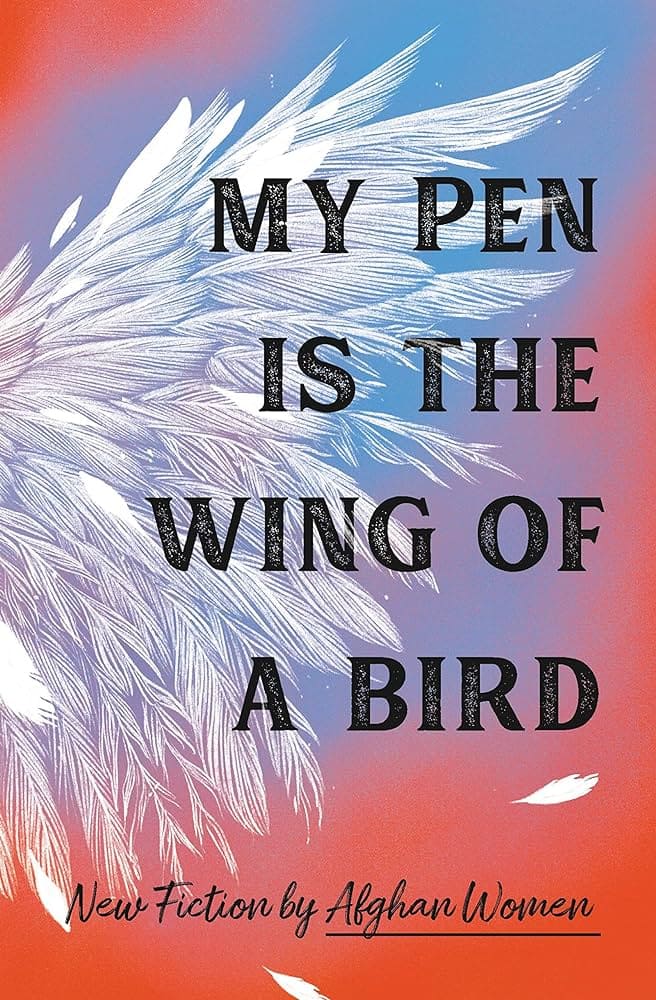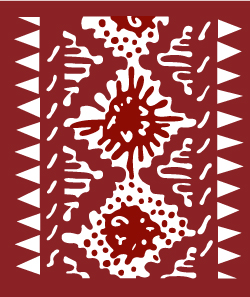
BG1 - Review November 24th
This is the first anthology of short fiction by Afghan women in an English translation. Eighteen writers tell stories that are both unique and universal – of family, work, childhood, friendship, war, gender identity and cultural traditions. The stories illuminate the personal impact of war on women’s lives and the ripple effect of endemic violence.
The anthology’s title is explained in the epigraph: “My Pen Is The Wing Of A Bird; it will tell you those thoughts we are not allowed to think, those dreams we are not allowed to dream.” This was written by Batool Haidari, who contributed two stories, both originally in Dari. “I Don’t Have the Flying Wings” & “ Khurshid Khanum Rise and Shine.
Oppression in both the private and the public spheres is a recurring theme in the anthology. “ I Don’t Have the Flying Wings”.
Families fractured by Afghanistan’s recent history is another recurring theme. The reader is often confronted with the harrowing aftermath of explosions or shootings. “Blossom”, translated from Dari by Negreen Kargar, was written in honor of Afghan schoolgirls, in particular, the students of Sayed ul-Shuhada high school in Kabul, which was bombed in 2021.”The Red Boots”, by Naeema Ghani, translated from Pashto approaches the cheerful. “Ajah” by Fatema Khavari, in Dari, explicitly celebrates female cooperation and determination.
Now this remarkable collection of stories offers us different kinds of words. They give us narratives that can start to provide more nuanced answers to these urgent questions, they take us into the small-but-ever-so-significant minutiae of daily life. They do so because they are by Afghan women writing in the language in which they feel most at home—in Afghanistan’s two principal languages, Dari and Pashto—impressively and painstakingly translated into English by Afghan women, and men, some of whom are writers themselves.
Inside the small, sometimes suffocating worlds they create, there are much bigger stories and disturbing issues—misogyny, patriarchy, terrible domestic abuse, horrifying oppression in both private and public spaces.”
These are chronicles about the day-to-day for Afghan women—and men, too. Cruel war doesn’t discriminate by gender. Above all, these untold stories tell us about a society where men, and a web of societal rules and expectations, control so many aspects of so many women’s lives, no matter their standing in society. And remember—they were written even before the Taliban returned to power. Afghan women will tell you: their fight didn’t begin, and won’t end, with the ultra-conservative Taliban fixing the limits of their lives in a deeply conservative society. But now, for many, it is much worse.” We read how so much of life is lived inside—inside rooms; inside heads and hearts. In this interiority, characters reveal fantasies and fears, their dread and dreams. Women look into mirrors; they look inside themselves. They yearn for silence and space.
9 of us met on the 24th November with Noriko hosting and Nisha leading. The discussion as usual took us down many paths – History, Cultural nuances, integration, immigration. Discussion on the many turns of phrases that flowed so very poetically. We all agreed we would recommend the read going forward. It was definitely a challenging read, not one for the faint hearted!
Nisha Dobberstein
